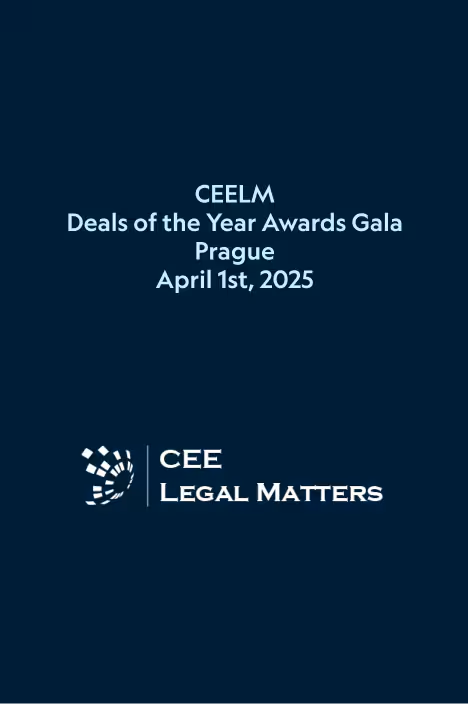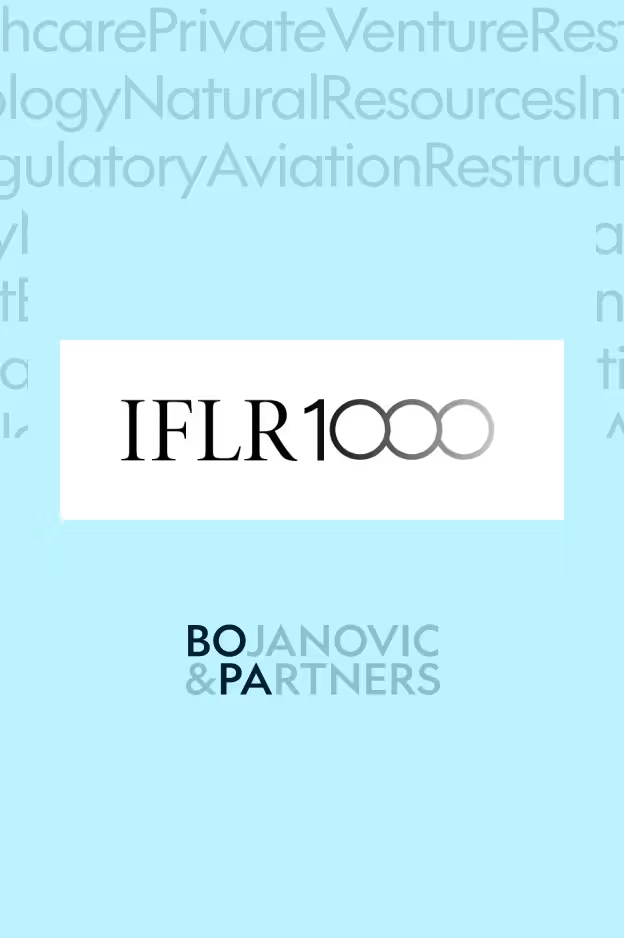Deals
BOPA Advises CVC Capital Partners and Mehiläinen on the Acquisition of MediGroup Hospital in Serbia
BOPA is honoured to announce its role in advising CVC Capital Partners and Mehiläinen on the landmark acquisition of MediGroup Hospital in Serbia, marking a pivotal moment in the international expansion of Mehiläinen, Finland’s renowned healthcare provider.
Read more

Deals
BOPA Advises CVC Capital Partners and Mehiläinen on the Acquisition of MediGroup Hospital in Serbia
3.4.2025

Awards
BOPA Bojanović & Partners is once again highly ranked in all 8 practice areas by The Legal 500
2.4.2025

Awards
BOPA will be attending the CEELM Deals of the Year Awards Gala in Prague on April 1st, 2025
25.3.2025

Awards
A BOPA’s deal has been nominated for the 2024 Deal of the Year Award for Croatia and Slovenia
23.3.2025

Awards
BOPA Bojanović & Partners is once again highly ranked in all 8 practice areas by The Legal 500
28.3.2024

News
Serbian government plans to introduce changes in legislation governing employment of foreigners
29.12.2022

Deals
BOPA Advises CVC Capital Partners and Mehiläinen on the Acquisition of MediGroup Hospital in Serbia
3.4.2025

Awards
BOPA Bojanović & Partners is once again highly ranked in all 8 practice areas by The Legal 500
2.4.2025

Awards
BOPA will be attending the CEELM Deals of the Year Awards Gala in Prague on April 1st, 2025
25.3.2025

Awards
A BOPA’s deal has been nominated for the 2024 Deal of the Year Award for Croatia and Slovenia
23.3.2025

Awards
BOPA Bojanović & Partners is once again highly ranked in all 8 practice areas by The Legal 500
28.3.2024

Awards
BOPA Bojanovic and Partners has won the 2022 Slovenian and Montenegrin Deal of the Year award
3.5.2023

Awards
BOPA Bojanović & Partners once again highly ranked in all 8 practice areas by Legal 500 in 2023
13.4.2023

































